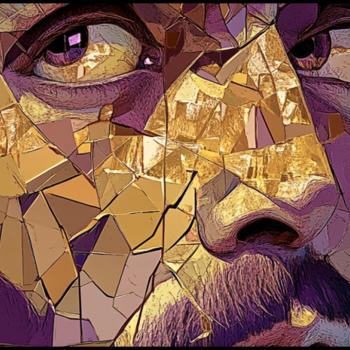“He saved others,” they said, “but he can’t save himself! He’s the king of Israel! Let him come down now from the cross, and we will believe in him.” [Matt. 27:42]

I am starting to think that the word “saved” or the phrase “will be saved” in the New Testament isn’t always talking about salvation in the spiritual sense that we often assume it is.
In other words, I think we have been conditioned to believe that when Jesus or Paul or anyone else in the New Testament scriptures uses the term “salvation” or “saved” that they mean something about going to heaven or escaping hell.
Now, there may be certain verses where this may be the case [although I don’t think going to heaven or escaping hell as we have come to know it was really the focus on anything Jesus talked about], but more often than not I think when we read this term what is in view is something much more practical.
For example, the verse above from Matthew 27:42 uses the term “saved” and “save” in ways that have nothing to do with eternal rewards.
Yet, the word in the Greek that is being used here is “Sozo” which is the same word used in those passages where we most often assume the subject is “escaping eternal torment.”
First, let’s examine how the word “sozo” is used in Matt. 27 above. First, those who mock Jesus as he is on the cross say that “He saved others.” Do we think that the Pharisees believed or witnessed Jesus “saving” people in the sense that people went to heaven? That wouldn’t make much sense in the context, and from these sources who did not believe any such thing about Jesus. However, what even the enemies of Jesus would have to affirm is that Jesus healed people all throughout his ministry. And one of the meanings of this word “sozo” [translated here as “saved”] is this: “to save a suffering one (from perishing), i.e. one suffering from disease, to make well, heal, restore to health.”
So, a more accurate translation of this verse might be: “He [Jesus] healed others [or restored others, or rescued others from harm] but he cannot do the same for himself by removing those nails and coming down off the cross.”
In this case, the term “saved” or “save” is not at all about going to heaven or escaping hell. It’s very simply and practically about escaping a very present danger experienced through physical pain in the body right now.
And that is exactly the kind of “saved” or “save” I believe the New Testament scriptures most often refer to when the term is used. The “sozo” that Jesus offers his people during his ministry is the opportunity to be healed from their violent way of thinking that can only lead them to suffer death at the hands of the Romans [which is exactly what many of those same people suffered by not putting his words into practice].
Simply put, I think what Jesus came to “save” people from was death at the hands of the Romans, even as he was being put to death by the Romans.
Salvation and “being saved” then, in this context – I believe – was mostly about rescuing his people from physical death and destruction, not about selling tickets to heaven or passing out “get out of hell free” cards.
Now, certainly, Jesus did talk about our eternal condition post-death. When he told the thief on the cross next to him, “Today you will be with me in paradise” that was a promise of ongoing consciousness after we die. But I still think it’s worth our time to go back and revisit those scriptures where Jesus specifically uses the word “sozo” to see if what he’s speaking of is really about rescuing his people from the hands of the Romans [specifically to avoid the fate of the destruction of Jerusalem in AD 70].
So far, I am very convinced that this is mainly his focus, not to get people to heaven in the afterlife, but to rescue his people from a hell that would come just 40 years later when Roman centurions would surround the city and bring an end to the age.
**
The 3 Biblical Views of Hell Examined Class starts Oct. 5
What if Hell isn’t an eternal torture chamber and God is better than you think? Join me for a 3-week online course to learn the historical origins of Eternal Conscious Torment and the other 2 Biblical views of Hell taught by the Christian Church from the very beginning.
Keith Giles and his wife, Wendy, work with Peace Catalyst International to help build relationships between Christians and Muslims in El Paso, TX. Keith was formerly a licensed and ordained minister who walked away from organized church over a decade ago to start a home fellowship that gave away 100% of the offering to the poor in the community. Today he is the author of several best-selling books, including “Jesus Unexpected: Ending The End Times To Become The Second Coming” which is available now on Amazon.













